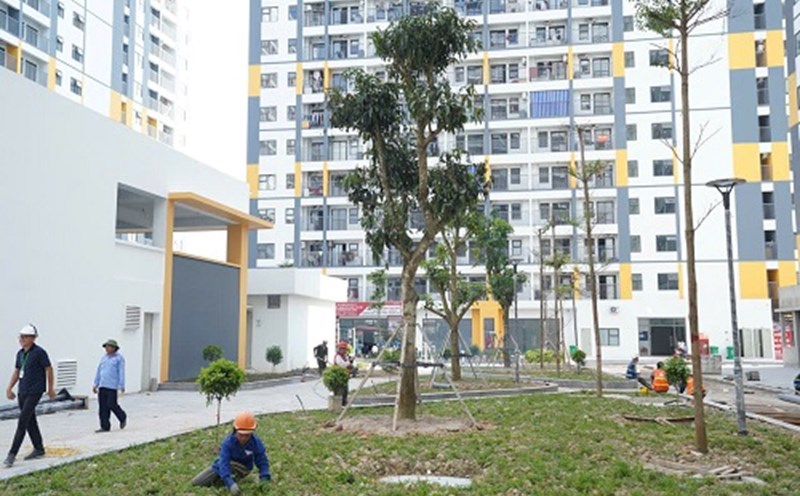Tightening second home credit is not a limitation of property rights
The Ministry of Construction is seeking opinions on the draft regulation limiting secondary home loans or more. According to the proposal, buyers of second apartments can only borrow up to 50% of the contract value, while those of third apartments or more can only borrow 30%. Many opinions are concerned that this regulation may infringe on people's property rights and freedom of business.
Talking to Lao Dong reporter, Lawyer Truong Anh Tu - Chairman of TAT Law Firm, expert on housing policy and real estate market, said that the State has the responsibility to protect the group of people with real housing needs.
Lawyer Tu shared: "First of all, it is necessary to clearly affirm: The right to legal ownership of assets, the right to freedom of business and the right to access credit are rights protected by the 2013 Constitution and the law of Vietnam.
However, the draft does not prohibit people from owning second and third homes. The draft only adjusts credit policy, that is, the State uses capital flow regulation tools to control speculation and reduce financial risks. This is a constitutional provision and is in accordance with international practice.
The layered credit policy does not infringe on ownership rights, but aims to manage system risks. In the context of rapidly increasing housing prices, the market is dominated by speculation and planning information, the State is responsible for protecting the group of people with real housing needs".

Difficult to implement without a synchronous database
According to lawyer Tu, in the context of Vietnam currently not having a synchronous data system on housing, determining which is the "second home" to apply the policy without being taken advantage of or applied incorrectly is the biggest challenge when implementing.
"Although Decree 94/2024/ND-CP has laid the foundation for digitalizing and connecting housing data, implementation still has many limitations. To accurately identify the buyer of a second apartment, it is necessary to integrate data between the agencies: Population, tax, bank and land. An individual without a stable income but is the owner of many real estates must be discovered and handled.
International experience shows that many countries such as Singapore, South Korea, and China have applied credit classification policies through the LTV (loan-to-value ratio). People who buy a house for living can borrow 80-90%, people who buy a second house can borrow only 50-60%, and investors can borrow less. This model helps reduce speculation while still ensuring liquidity for people with real housing needs" - Chairman of TAT Law Firm said.
Meanwhile, Lawyer Pham Thanh Tuan - Hanoi Bar Association commented that applying the credit limit as proposed by the Ministry of Construction is still a big challenge for banks when disbursing.
"Currently, data and information on land, housing and the real estate market in our country are still in the process of completion. The land and housing information system is not connected and shared consistently, so determining the number of houses that each individual owns as a basis for applying the lending limit is very difficult.
In other words, to implement the regulation on credit limitation for second home buyers and above, banks need to have accurate data on the residential property of each individual.
The Government is aiming to complete the management, operation and connection of the national information system on land in a centralized manner, unified from the central to local levels, and at the same time connect with other databases such as population, tax and real estate market by 2025; promote the provision of online public services and electronic transactions in the land sector. Many localities are also implementing a 9-day campaign to digitize land data to update and synchronize information.
However, data is still lacking, scattered and not shared interconnectively, so "counting" the number of houses of people to apply credit limits is still a big challenge for banks when disbursing" - Lawyer Tuan commented.










